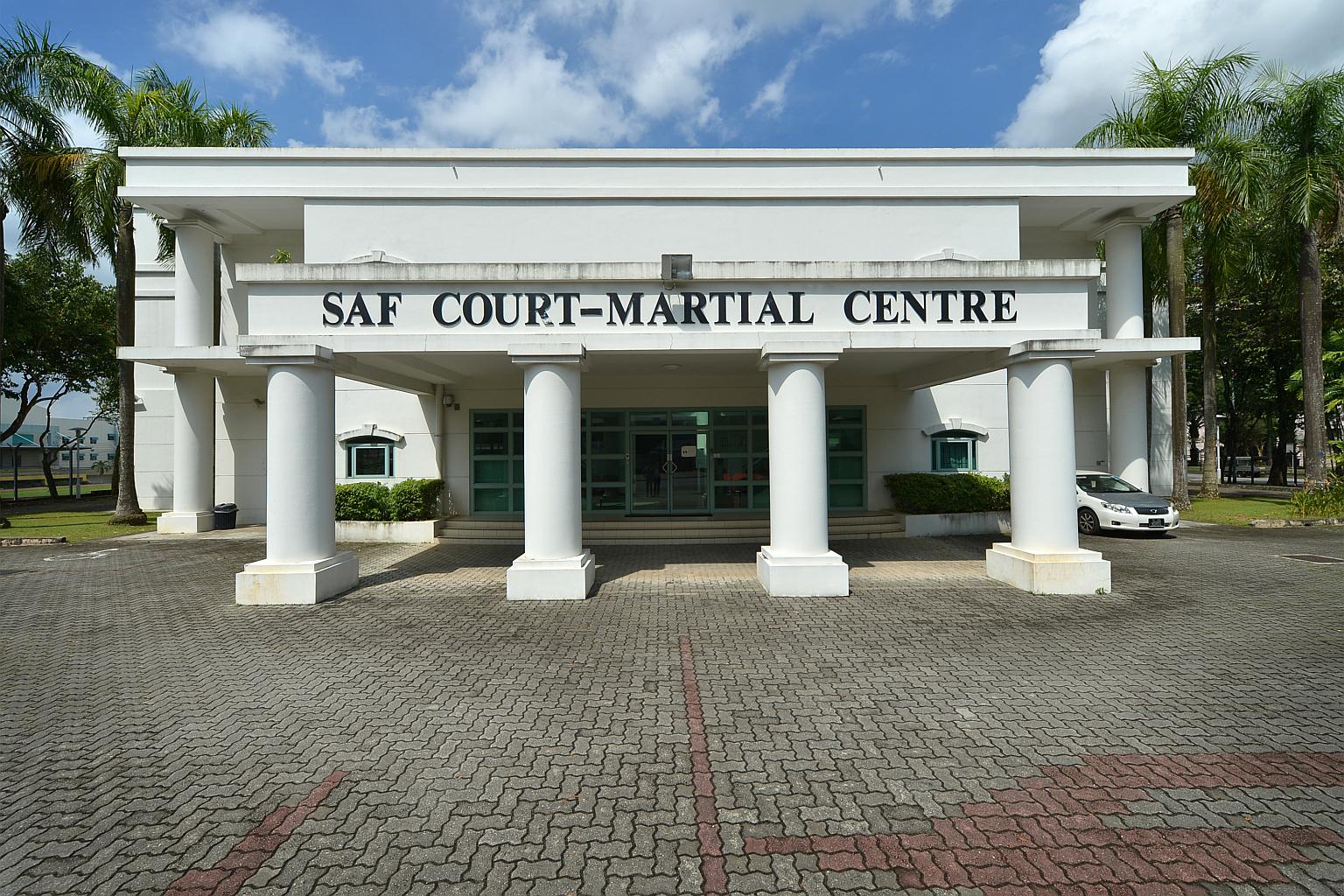The military justice system in SAF
Sign up now: Get ST's newsletters delivered to your inbox

The SAF Court-Martial Centre at Kranji Camp II.
ST PHOTO: ALPHONSUS CHERN
The military justice system underpins discipline in the Singapore Armed Forces (SAF) and is the main reason why offences that have a bearing on integrity, discipline and honesty have to be court-martialled, according to lawyer Amolat Singh.
These misdemeanours can range from cheating at physical fitness tests, to going absent without leave (Awol), to theft.
Depending on the offence, soldiers are brought before either a Judge Court Martial or Panel Court Martial.
The former, presided over by a district judge from the State Courts, deals with civil offences such as theft and drug consumption.
In the latter, the judge is joined by two senior military officers on a panel which deals with "purely military offences", including Awol and desertion, said Mr Singh.
Like the civilian courts, soldiers who are unhappy with their conviction or sentence can appeal to the Military Court of Appeal - the highest authority.
They can also petition the Reviewing Authority of the Armed Forces Council, which consists of the Chief of Defence Force, a Service Chief, and the Ministry of Defence's permanent secretary for defence development. The Reviewing Authority can quash a court-martial sentence or reduce it.
Less severe offences are summarily tried. The soldier is charged before his commanding officer and does not go to court.
Lawyers also point out that a military conviction does not necessarily translate into a civilian criminal record. "The conviction and record stays within the SAF - it's considered military conduct which is reflected in his conduct sheet," said lawyer Laurence Goh Eng Yau.
However, The Sunday Times understands that more serious crimes, such as drug offences and misappropriation of public property, will be transferred over to the criminal records office.
Regardless of the offence, the ultimate goal is to rehabilitate the serviceman.
"It's not about throwing the book at the person or locking him up and throwing away the key," said Mr Singh.
"It's about reintegrating him back into his unit as an effective member of the fighting force."
Danson Cheong
Correction note: An earlier version of the story said that convicted servicemen can petition the Armed Forces Council, which can quash or reduce their court martial sentences. We would like to clarify that servicemen can petition the Reviewing Authority of the Armed Forces Council. This authority consists of the Chief of Defence Force, a Service Chief, and the Ministry of Defence's permanent secretary for defence development.
Correction note: An earlier version of the story said that convicted servicemen can petition the Armed Forces Council, which can quash or reduce their court martial sentences. We would like to clarify that servicemen can petition the Reviewing Authority of the Armed Forces Council. This authority consists of the Chief of Defence Force, a Service Chief, and the Ministry of Defence's permanent secretary for defence development.


